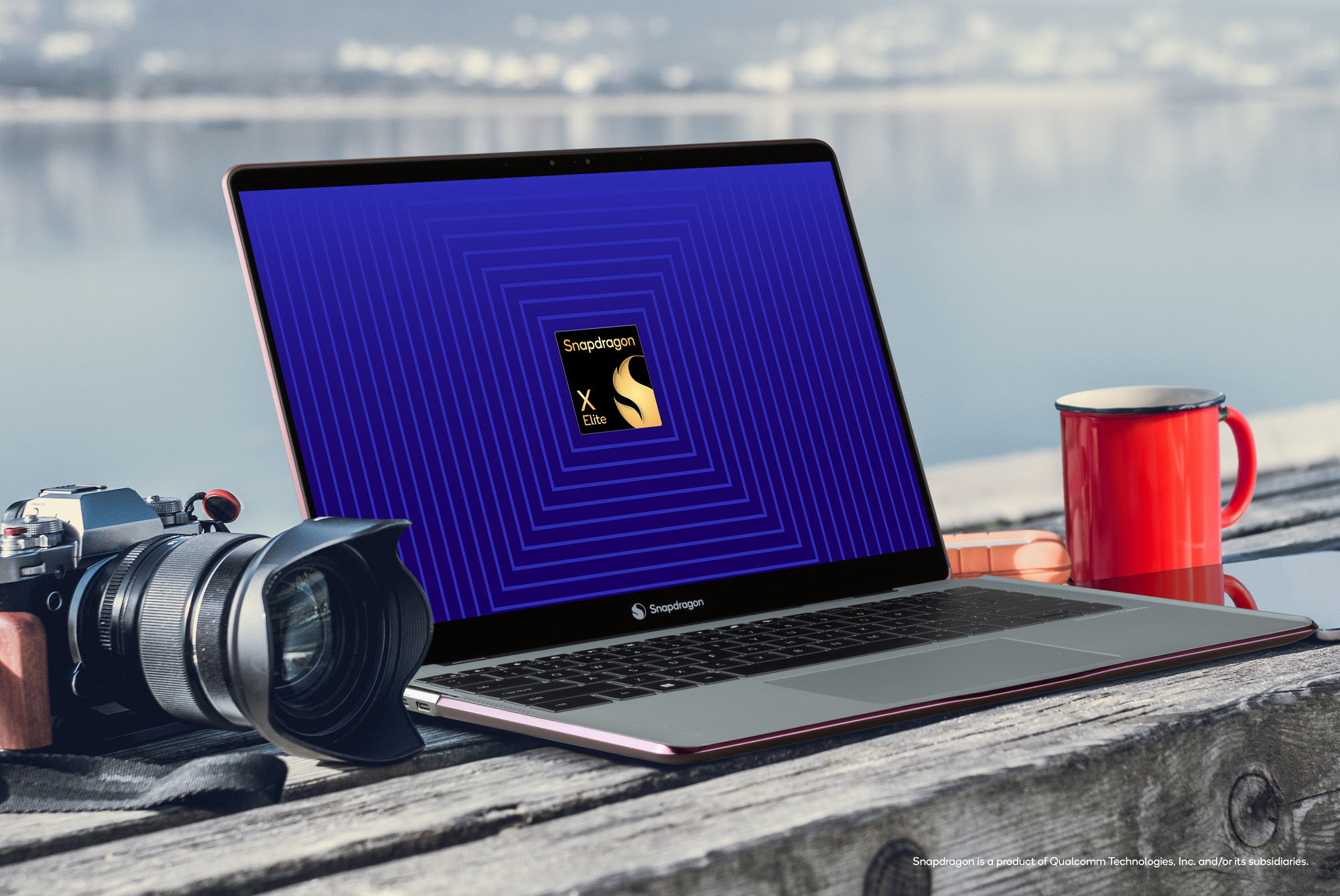x86 reigns supreme as Snapdragon X Elite chips captured just 0.8% of the market with 720,000 units sold in Q3 2024 — Qualcomm misses out on rising AI PC sales with Intel and AMD taking charge
X Elite is struggling to win over consumers.

Despite Qualcomm's ambitions and high hopes to control over 50% of the Windows market in the next five years, recent statistics show that its first-gen X Elite offerings are failing to gain consumer traction. TechRadar reports that of all PCs sold in Q3 24, Qualcomm's chips powered 720,000 units - capturing just 0.8% of the entire market. In other words, one out of every 125 devices sold in the last quarter featured an X Elite processor, which pales in contrast to Intel, AMD, and even Apple on the Arm front.
Undoubtedly, AI PCs are on the rise, primarily because virtually every new processor comes equipped with a Copilot PC+ compliant NPU. Per the report, 13.3 million AI PCs were shipped in Q3 this year - a 20% increase compared to last quarter. For the uninitiated, this stat refers to PCs featuring an NPU-equipped processor, like Intel's Meteor Lake and Lunar Lake offerings, AMD's Phoenix, Hawk Point, and Strix Point series, and Qualcomm's X Elite SoCs.
Despite a 180% surge in X Elite sales from Q2 24 to Q3, Qualcomm's chips power less than 1.5% of Windows PCs. This lackluster reception is primarily due to unoptimized software or the lack thereof. For example, Microsoft's tardy release of an official Windows 11 ISO for Arm devices left early X Elite adopters in the cold for months. Additionally, Linux support isn't as robust as existing x86 alternatives; longer battery life isn't sufficient or incentivizing enough to drive adoption.
Qualcomm is preparing to launch budget X Elite laptops next year to somewhat alleviate this situation. On that note, the fruits of Qualcomm's acquisition of Nuvia are materializing—both in terms of high-stakes litigation and powerful mobile SoCs, namely, the Snapdragon 8 Elite designed using the Oryon 2 architecture. Rumors suggest that the X Elite's successor will jump directly to Oryon 3, aiming for a 2025 reveal/launch.
In any case, compatibility will always be an issue with these Arm SoCs (in Windows) - be it any chip maker. Apple's sheer market share and dominance compelled developers to write and optimize software for its silicon. Collaborating with Microsoft is vital for Qualcomm in this regard, however, it'd still have to compete with other x86 players in the Windows space; Intel and AMD.
Get Tom's Hardware's best news and in-depth reviews, straight to your inbox.

Hassam Nasir is a die-hard hardware enthusiast with years of experience as a tech editor and writer, focusing on detailed CPU comparisons and general hardware news. When he’s not working, you’ll find him bending tubes for his ever-evolving custom water-loop gaming rig or benchmarking the latest CPUs and GPUs just for fun.
-
ClementNerma That's pretty normal ; these chips are very recent and only available in $1000+ laptops. So not everyone can afford them. And Apple is going strong with its MacBooks as well.Reply -
TTech002 It's only Windows lack of compatibility that will hurt these, plus the removal of the Android subsystem for Windows, that you would think would be an easy bonus.Reply -
bit_user Qualcomm needs others to enter this space. Their exclusivity deal with Microsoft has probably done more harm than good, as they struggle to establish the Windows on Arm market.Reply
They also need to be willing to compete on price. Right now, Windows-on-Arm is considered worse than Windows-on-x86. However, you can start to build the market with some bargain hunters and that might help provide enough momentum for the ecosystem to mature and attract the big corporate customers, who are traditionally very conservative in their decisions about computing platforms.
I think Qualcomm succeeded in building a product that basically appeals to no one. These machines certainly aren't attracting gamers, but rather seem more like ultra-light corporate laptops. However, most corporations won't touch anything so new and immature, like I mentioned above. They're too expensive for schools and students, so I'm not sure exactly who is buying them! -
JamesJones44 Looking at one quarter of sales for something that was just released late June and really early July doesn't paint a complete picture. Most consumers likely aren't even aware of the differences and probably comes down to sales segments.Reply
A better metric to compare would be sales of similarly priced laptops to see what the real distribution of sales are. If 80% of the laptops sold in Q3 where budget than this number is pretty meaningless. If 80% were in the same competing segment as X Elite bases laptops than the number is very significant.
Without that detail it's hard to make any hard calls about the success or lack of success the X Elite is having. -
mac_angel I don't understand why Qualcomm and/or NVidia don't bother with just licensing the x86 and x64 tech. Qualcomm was looking at buying Intel as it is, and Jensen Huang is worth more than Intel as it is.Reply -
JamesJones44 Reply
My understanding has it has to do with Intel not wanting to license x86/x64, IDK how true that really is, but that is what many have claimed. Given Intel's situation they might be more receptive these days however. AMD also owns a chunk of the license so they would need to play ball as well.mac_angel said:I don't understand why Qualcomm and/or NVidia don't bother with just licensing the x86 and x64 tech. Qualcomm was looking at buying Intel as it is, and Jensen Huang is worth more than Intel as it is. -
palladin9479 Reply
Intel hasn't been too keen on licensing x86 since the 90s. With their current manufacturing situation, I can see them to start doing that.mac_angel said:I don't understand why Qualcomm and/or NVidia don't bother with just licensing the x86 and x64 tech. Qualcomm was looking at buying Intel as it is, and Jensen Huang is worth more than Intel as it is. -
thestryker Reply
These would have been perfect price/perf/efficiency for the standard corporate setup.bit_user said:However, most corporations won't touch anything so new and immature, like I mentioned above.
I think corporations would have jumped on them without the VPN incompatibilities and no Google Drive support on launch. This is really basic functionality which has to work and when it doesn't it sends up all sorts of red flags about the platform itself whether or not it impacts a specific organization.
This exactly, because when your audience is limited to people who know the limitations and are willing to deal with it despite the cost you're nowhere.bit_user said:I think Qualcomm succeeded in building a product that basically appeals to no one. -
AtrociKitty I have a Snapdragon X laptop and I think they're unfairly overlooked by some, although I do acknowledge they're still a niche product. I've been really happy with mine thus far (Yoga Slim 7x), with the most noticeable difference being that it runs cooler than any other laptop I've had.Reply
The problem is it seems like a product for the extremes of the bell curve, rather than the center where most customers are. For example, I'd have no problem recommending one to someone with minimal tech skill or knowledge. Mainstream software will "just work," with installers pulling ARM builds automatically. An enthusiast at the other extreme will also have no issues, because they know how to work around the rare incompatibility, and likely have other computers on top of that. The problem is your average consumer, who knows just enough to hit something incompatible or to download the wrong installer, but not enough to fix it.
That said, I've been surprised by how good compatibility is to start with. I've only run into two programs that outright didn't work: an automotive ECU editor and an astronomy image stacker, both extremely niche. Everything else simply runs or has an ARM build (excluding modern gaming, but these are not gaming laptops). -
sivaseemakurthi Some commenters the missing the context. Qualcomm CEO predicted 50% market share for snapdragon laptops in 4 years, so everyone is focused on the low sales.Reply